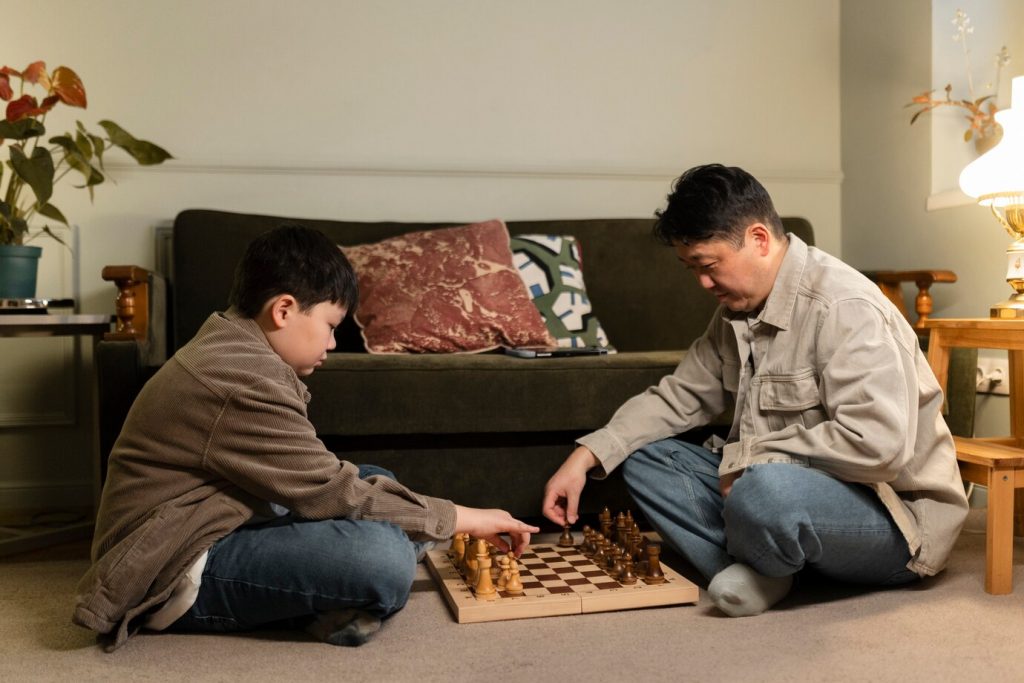The Early Introduction
Many chess prodigies start their journey at a tender age, often with the guidance of their parents. Bobby Fischer, one of the greatest chess players in history, learned chess from his sister and mother. The early introduction to chess sets the stage for a lifelong love affair.
Financial Support
Chess isn’t an inexpensive hobby. It involves the cost of coaching, tournament fees, travel, and even chess sets. Parents often bear these expenses. According to a study by the American Chess Foundation, 43% of parents spend more than $500 a year on their chess kid’s activities.
Emotional Support
Chess can be mentally taxing. Wins and losses are part of the game, and it’s essential to have a strong support system. Garry Kasparov, the World Chess Champion, once said, “The game of chess is not merely an idle amusement. Several very valuable qualities of the mind, useful in the course of human life, are to be acquired or strengthened by it.” Parents provide the emotional stability that helps young players navigate these ups and downs.
Encouragement and Motivation
Encouragement can do wonders. Parents play a pivotal role in keeping their chess kids motivated. Susan Polgar, a renowned chess player, emphasized this when she said, “The most important element in chess is motivation. You have to have the passion and love for chess.” Parents often serve as a wellspring of this passion.
Caissa School of Chess has become a top choice for chess players who are starting their chess learning journey. Explore Caissa School of Chess to discover how it can help your chess kid nurture their chess talent.
Finding the Right Coach
Choosing the right coach is crucial for a young chess player’s development. Parents take on the responsibility of finding a coach who can nurture their chess kid’s talent. The guidance of a skilled coach can make all the difference.
Balancing Academics and Chess
Education is vital, and parents must ensure that their chess kid strikes a balance between academics and chess. Boris Spassky, a former World Chess Champion, once noted, “Chess is everything: art, science, and sport.” Parents need to ensure that the pursuit of chess does not hinder their chess kid’s academic growth.
Handling Losses
Losing is inevitable in chess. But how a chess kid deals with defeat is often shaped by their parents. Anatoly Karpov, another chess legend, stressed, “The most important feature of the chess player is the ability to think on his own.” Parents teach resilience and the importance of learning from mistakes.
Community Building
Chess is not just about individual players; it’s a global community. Parents often engage in networking with other chess parents, creating a supportive ecosystem. They share experiences, insights, and tips that benefit their chess kid’s growth.
Conclusion
In the world of chess, the role of parents cannot be understated. They are the silent yet powerful architects of their chess kid’s journey. With financial support, emotional guidance, and unwavering encourageme`nt, parents mold their children into not just better chess players, but also resilient individuals who can face life’s challenges head-on.
As Garry Kasparov aptly put it, “Chess helps you to concentrate, improve your logic. It teaches you to play by the rules and take responsibility for your actions, how to problem-solve in an uncertain environment.” Parents are instrumental in imparting these invaluable life lessons through chess.
Many parents trust Caissa School of Chess for its experienced coaches and tailored programs. Consider this trusted institution as you guide your chess kid through their chess journey.





